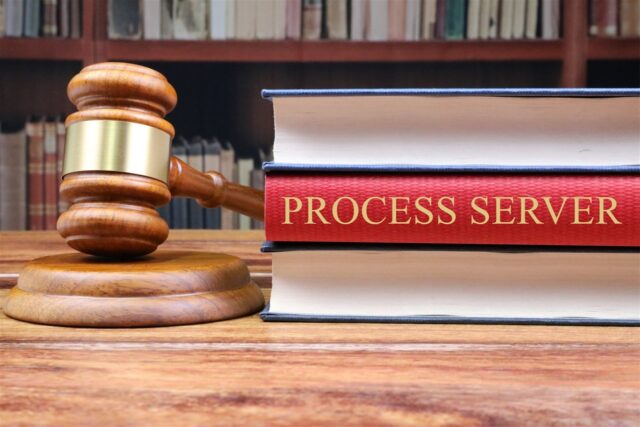
Process serving is an essential and often overlooked aspect of the legal system. It plays a critical role in ensuring that justice is served by delivering legal documents, such as court summons and subpoenas, to individuals involved in legal proceedings. Process servers act as intermediaries between the legal system and the recipients of these documents. In this comprehensive guide, we will delve into the world of process serving, exploring its significance, legal challenges, and techniques to excel in this profession.
Process servers are the unsung heroes of the legal world. They bridge the gap between the law and its subjects, ensuring that due process is followed. Without their dedication and expertise, legal proceedings would grind to a halt. Their role is pivotal in upholding the principles of fairness and transparency in our justice system.
1. Understanding Legal Requirements
The role of a process server is subject to various legal requirements and regulations, which can vary significantly from one jurisdiction to another. These requirements dictate how and when documents should be served, and they are designed to protect the rights of all parties involved. As a process server, it is imperative to familiarize yourself with the specific laws governing your area of operation.
To navigate legal challenges successfully, you must stay updated with local laws and regulations. This includes being aware of any recent changes or updates to the rules surrounding process serving. Ignorance of the law is not an excuse, and a failure to adhere to these requirements can result in legal consequences and jeopardize the integrity of the legal proceedings.
2. Maintaining Professionalism
Professionalism is the cornerstone of a process server’s career. It involves a commitment to integrity, ethics, and a high level of competence. Maintaining professionalism is not only a legal requirement but also a key factor in building a positive reputation within the legal community.
To maintain a professional demeanor, process servers should always dress appropriately, act courteously, and approach their work with a sense of responsibility. Being punctual and respectful when serving legal documents goes a long way in establishing trust with all parties involved in a case.
3. Safety Precautions

Safety is paramount in the world of process serving. While most encounters are routine, some can become volatile or even dangerous. To ensure personal safety, process servers should take precautions such as conducting a risk assessment before each service, notifying someone of their whereabouts, and having a backup plan in case of emergencies. Training in self-defense techniques can also be invaluable in certain situations.
Additionally, process servers should be aware of local laws regarding self-defense and the use of force. Always prioritize personal safety and de-escalation techniques when faced with confrontational situations.
4. Effective Communication
Clear and respectful communication is essential when serving legal documents. Process servers often encounter recipients who may be emotionally charged or uncooperative. In such situations, it is crucial to remain calm and composed.
When dealing with difficult individuals, techniques such as active listening and empathetic responses can help defuse tension. Remember that your role is not to take sides but to facilitate the legal process. Courteous and patient communication can make a significant difference in how your service is received.
5. Record-Keeping and Documentation
Thorough record-keeping is a fundamental aspect of process serving. Accurate documentation of your activities provides a crucial trail of evidence that can be invaluable in legal proceedings. Record important details, such as the time, date, location, and the recipient’s response during the service.
It’s also advisable to use digital tools for documenting your work. Technologies such as GPS tracking and electronic signatures can enhance the reliability of your records, making them more convincing in court if necessary.
6. Navigating Evasive Recipients

Dealing with evasive recipients is a common challenge for process servers. Some individuals may go to great lengths to avoid being served, which can be frustrating and time-consuming. However, there are strategies to address this issue effectively.
One approach is to be persistent yet respectful. Always adhere to legal boundaries and never engage in harassment. If a recipient consistently evades service, consult with legal counsel about alternative methods, such as substitute service or publication in accordance with local laws.
7. Technology in Process Serving
The digital age has transformed the process serving profession. Technology has made it easier to track and document services accurately. GPS technology, for instance, allows process servers to confirm the precise location and time of service, making disputes less likely.
Electronic signatures are another innovation that has streamlined the process. They provide a secure and efficient way to acknowledge receipt of legal documents. Embracing these technological advancements can not only improve efficiency but also enhance the credibility of your services.
8. Maintaining Ethical Standards
Maintaining ethical standards is non-negotiable for process servers. Ethical dilemmas can arise when dealing with sensitive cases or difficult recipients. It’s essential to prioritize ethics over expediency and never engage in unethical or illegal practices.
Common ethical dilemmas in process serving include impersonation, falsifying documents, or violating the recipient’s privacy. To handle these situations ethically, consult with your legal counsel or a professional association for guidance.
9. Dealing with Legal Obstacles

Process servers may encounter legal obstacles during their work, ranging from trespassing allegations to service disputes. It’s crucial to be prepared for these challenges and have strategies in place to overcome them.
If you are accused of trespassing, ensure that you have proper documentation, including GPS records, to demonstrate that you remained within legal boundaries during the service. In cases of service disputes, maintain open communication with all parties and consult with your legal counsel for guidance on resolving the issue.
10. Continuous Education and Training
The field of process serving is constantly evolving, with new laws, technologies, and best practices emerging regularly. To stay at the top of your game and navigate legal challenges effectively, ongoing education and training are essential.
Seek out resources, workshops, and organizations dedicated to process servers’ professional development. Joining a professional association can also provide valuable networking opportunities and access to the latest industry updates.
11. Staying Resilient
In conclusion, process serving is a vital component of the legal system, and process servers play a crucial role in ensuring that justice is served. To navigate the legal challenges inherent in this profession, remember to:
- Understand and adhere to legal requirements and regulations in your jurisdiction.
- Maintain professionalism and prioritize safety in your work.
- Communicate effectively and document your activities accurately.
- Develop strategies for dealing with evasive recipients and legal obstacles.
- Embrace technology to enhance efficiency and credibility.
- Uphold ethical standards at all times.
- Commit to continuous education and training for professional growth.
By following these tips and techniques, process servers can not only excel in their profession but also contribute to the integrity and fairness of the legal system. Stay resilient, stay dedicated, and always uphold the law while serving legal documents. Your role is essential, and your commitment to justice is invaluable.







